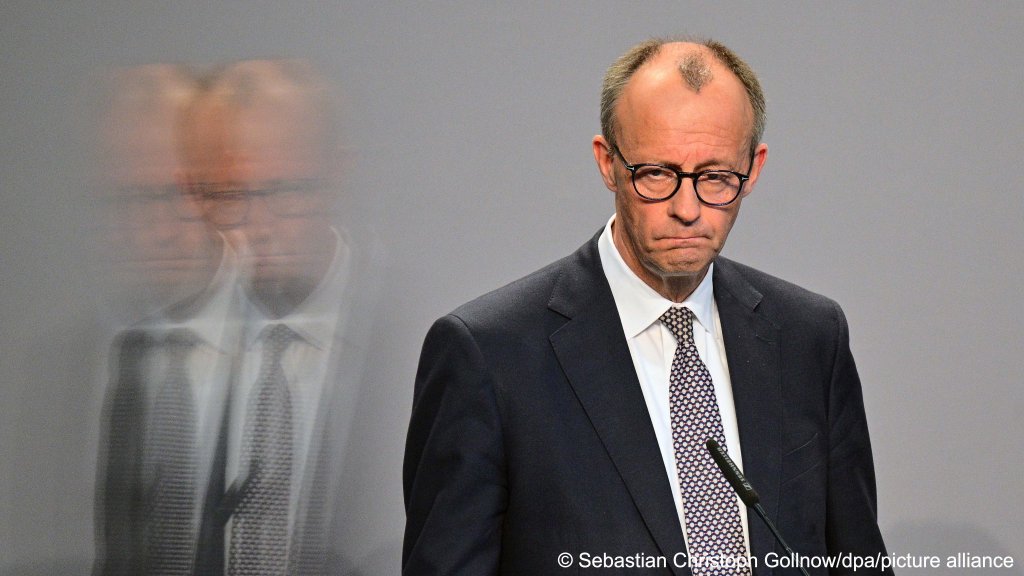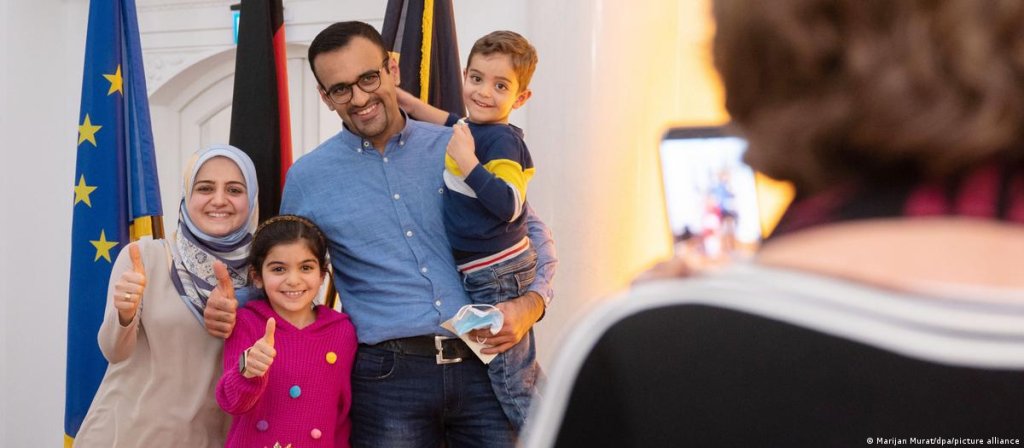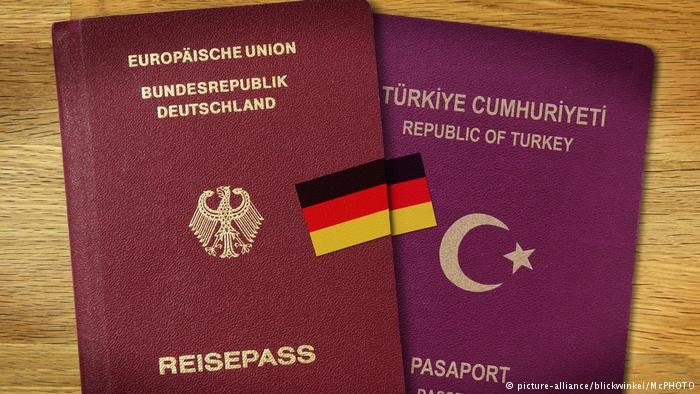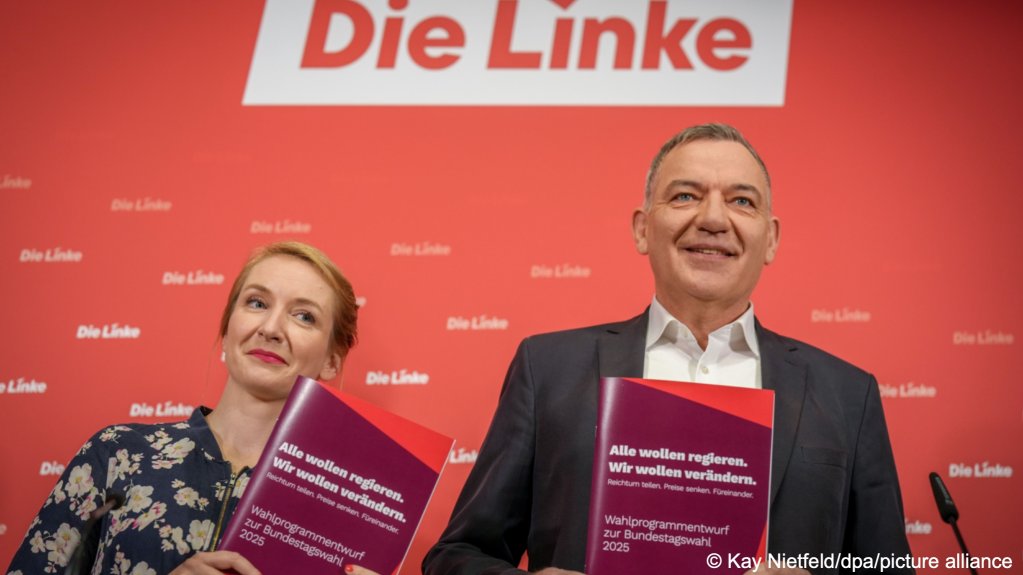The Christian Democrats (CDU/CSU) and the Social Democrats (SPD) have outlined their policy plans in their finalized coalition agreements, announcing restrictions on various immigration issues. Above all, the new government will make it more difficult to apply for asylum and also to secure German citizenship.
Germany's newly formed coalition government between the conservative Christian Democratic Union (CDU/CSU) and the center-left Social Democratic Party (SPD) have shared their plans for the next four years in government in a 144-page coalition agreement, outlining among other things a series of policy measures that will make it more difficult for people to secure international protection in Germany and to acquire German citizenship.
The announcement has been met with both criticism and interest, although many of its policy points on immigration were somewhat expected, since the CDU/CSU - the senior coalition partner - had already campaigned on a migration-focused platform in the run-up to the vote: CDU-leader Friedrich Merz had pledged during the election campaign to overhaul migration policies and to significantly reduce immigration to Germany.
CDU-politician Johann Wadephul, a senior member of the Bundestag, Germany's lower house of parliament, who focuses on foreign affairs issues, told InfoMigrants partner DW that this restriction direction was justified, saying that Germany needed a new approach to what he called the "migration problem," as in his view the country's current infrastructure could no longer handle migration in its current form.
InfoMigrants has summarized the main points of the coalition deal on migration, asylum, and citizenship.
Read AlsoGermany: What does the future hold for migrants after announcement of new grand coalition?
1. Tighter controls at all German borders
The continuation and planned expansion of tighter border controls will mean that individuals seeking to apply for international protection upon arrival in Germany from another European Union or Schengen country will effectively be denied entry.
The reasoning behind this is that Germany is practically landlocked within the EU, and that any prospective asylum seeker is legally required to lodge their asylum claim in the first EU member state they reach. Due to Germany's geographic location, this cannot be Germany.
However, provisions on "rejection of all attempts at illegal entry without exception" or a "de facto entry ban for persons without valid entry documents" as had been stipulated in the run-up to the election have been watered down. Nor are there any plans to shut down the borders completely under emergency decrees -- as was the case during the onset of the COVID-19 pandemic.

German news outlet Die Welt reported that the coalition agreement does not specially mention that "all attempts without exception" will result in denied entry but rather that rejections will only be carried out in close consultation with Germany's European neighbors.
According to Merz, Germany's now-likely next chancellor, the government remains in "close dialogue" with its neighbors, especially Poland and France, on the ongoing management and enforcement of border control measures.
Read AlsoGermany: Merz pushes for tougher border policies after election win
2. A fresh repatriation offensive
Merz announced the launch of a "repatriation offensive" consisting of plans to expedite the deportation of rejected asylum seekers in Germany.
This includes plans to increase the capacity of detention facilities to hold those who are deemed to be required to leave and could be considered likely to abscond otherwise, or those who might pose a danger to society.
Additionally, there are plans to grant federal police the authority to apply for the temporary custody or detention of individuals who are obligated to leave the country in order to facilitate their deportation.
While there was no explicit plan put forward for the handling of Syrian refugees and asylum seekers since the fall of the Assad regime in the country in December 2024, CDU-leader and chancellor-in-waiting Merz had opined before that Syrians and Afghans would not automatically be immune from deportation measures.

Read AlsoGermany: Coalition expected to pursue Syrian returns as soon as feasible
3. Ending voluntary resettlement programs
The coalition agreement outlines the termination of existing voluntary resettlement programs. These initiatives are designed for vulnerable people with particular needs for international protection, such as children, victims of torture or those in dire need of medical care to be relocated from conflict zones and crisis regions to Germany.
No new initiatives to replace voluntary resettlement programs will be launched, according to the coalition deal; however, individual cases can still be assessed on their own merit by local authorities at their discretion. It is likely, however, that such cases will be scrutinized more closely in future, and that fewer goodwill exceptions will be made.
Afghan nationals might particularly be affected by this cut of federal resettlement programs, as there are still hundreds of Afghans waiting to be resettled as part of several such admissions programs because they were found to be at particular risk under the Taliban regime. It is unclear whether those who have been cleared under existing programs to date will still be resettled, and whether people who have been cleared but not given a date can apply for extensions.
Just last month, several government-chartered flights with Afghan nationals were arrived from Islamabad in Germany.
Read AlsoFlight with Afghan reception program candidates arrives in Germany
4. Suspension of family reunification for refugees entitled to subsidiary protection
The coalition agreement also stipulates the suspension of family reunification rights for individuals who were granted subsidiary protection status. This type of protection is generally regarded as a downgrade from classic asylum, and is given under certain circumstances such as too many asylum applicants coming from the same country at the same time.
This suspension is set for two years now, during which affected individuals will not be able to bring any close family members to join them in Germany. Exceptions may be permitted but only in hardship cases.
To date, there was a quota of 1,000 entry permits per month for relatives of people with subsidiary protection status. The measure is designed for the government to get a grip on overall immigration numbers.

Statistics released by the German Foreign Office at the beginning of the year show that the majority of family reunification visas issued were given to children to join their parents in Germany. In 2024, approximately 12,000 family reunification visa applications were submitted. Of these, around 7,300 were for children to reunite with their parents.
Read AlsoGermany: Fears expressed about migrant children's rights under new government
5. Expanding the list of safe countries of origin
The coalition also announced that it plans to significantly increase the number of countries classified as "safe countries of origin."
This will mean that asylum applications from nationals of those designated countries are far more likely to be rejected on the basis that they are presumed not to face persecution in their country of origin. Those who fail will be told to return to their home countries.
Assessments of asylum applications will, however, continue to be on a case-by-case basis, as even people from so-called safe countries of origin might not suffer collective persecution but be affected on an individual basis.
Read AlsoImmigration: German voters want to accept fewer refugees
6. Amendments to Germany's citizenship law
The agreement outlines further reforms to Germany's citizenship laws, though for the most part they can be seen as a partial reversal of earlier amendments on the citizenship law, suspending what Merz referred to as "turbo naturalization."
This means that the three-year accelerated naturalization process introduced by the previous government for particularly well-integrated immigrants to Germany, will be abolished altogether, reverting to the legal residency requirement of five years.
However, other upgrades to Germany's citizenship law introduced by the previous administration, such as the reduction of the waiting period for standard naturalization from eight to five years and the allowance for dual citizenship, are set to be retained. These were changes intended to promote integration and acknowledge the contributions of long-term foreign residents in Germany.

Read AlsoGerman opposition calls for reversal of citizenship reform
There had also been reports saying that the coalition parties were exploring whether it would be legally possible to revoke German citizenship of those who were suspected to be "terror supporters, antisemites, and extremists."
While the legality of this is still being assessed, it is already clear that this type of measure would only apply to those with dual citizenship, since it is illegal for German authorities to actively render a person stateless.
Clara Bünger of the Left Party warned that any "right must always apply equally to everyone" and not doing so by singling out people with dual citizenship as candidates for having their naturalization revoked would pose serious questions about "who belongs and who doesn't."
Widespread criticism from human rights groups and opposition
Broader apprehensions among human rights organizations and political figures indicate that there is opposition to the coalition's approach to migration and integration policies.
Amnesty International slammed the coalition agreement as "an indictment on human rights," stressing that the restrictions on family reunification and the threat of deportations to Afghanistan and Syria were particularly serious issues.
"The coalition agreement ... serves racist enemy stereotypes, instrumentalizes residence and migration law, inflates surveillance and attacks civil society," Julia Duchrow, Secretary-General of Amnesty International in Germany, said in a press statement.
According to the Munich Eye, Felix Banaszak from the Green Party criticized Merz and the CDU's overall approach to immigration as jeopardizing fundamental aspects of the rule of law in Germany and as disregarding the standards set by the European Union's asylum system.

Similarly, Jan van Aken, the leader of the Left Party, criticized the coalition's migration strategies, which he said werere geared towards facilitating "increased deportations, heightened border controls, and restrictions on family reunifications," which van Aken called out as "not only un-Christian, but also illegal."
Van Aken also accused the coalition partners of attempting to distract from their own shortcomings by making life difficult for asylum seekers.
Somewhat surprisingly, even the far-right AfD party expressed its reservations about the coalition agreement, albeit from a different perspective. Controversial AfD-leader Alice Weidel said that the agreement had basically effected no change at all on the status quo of the major immigration issues.
Read AlsoGermany: Debunking some of the AfD's statements regarding migration
AfD popularity at all-time high
According to the latest opinion polls, the AfD has now become the most popular party in Germany since the elections two month ago, even outshining election-winner CDU/CSU. The AfD will be the largest party in opposition in the new Bundestag, where it is expected to scrutinize immigration matters particularly closely, much to the fear of many migrants and refugees in Germany.
Prior to the election, all other major parties had categorically ruled out entering any power-sharing agreement with the populist party; however, if elections were held today, the AfD would be given the mandate to form a government. If the refusal of the other parties persisted, a minority government again consisting of the CDU/CSU bloc and the SPD would likely have to lead the country - a highly unpopular scenario with lame duck undertones due to parliamentary majorities.
Both the CDU/CSU and the SPD have been at the forefront of German politics for decades, often working closely together as coalition partners in what is known in Germany as a "grand coalition" of the two parties.
Before the coalition government can take over full leadership, delegates from the coalition parties delegates and members must still approve the coalition agreement. However, this is largely seen as a formality at this advanced stage of negotiations.
Read AlsoGerman far-right AfD sees historic gains, still out of power
